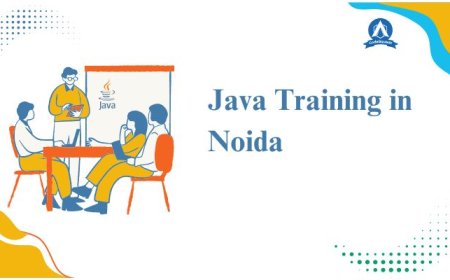Is RICS Accreditation Worth the Cost?
A simple, honest look at whether RICS accreditation is worth the cost. Learn about RICS membership benefits, the RICS assessment process, and how it impacts your career.

If you're working in real estate, property, construction, or land management , youve probably heard of RICS the Royal Institution of Chartered Surveyors.
Its one of the most respected names in the industry, especially if youre aiming for a senior role in valuation, project management, urban planning, or quantity surveying .
But here's the question many professionals ask:
Is RICS accreditation worth the cost?
Ive been there tooweighing up whether to invest time and money into becoming a Chartered Surveyor through RICS. In this article, Ill walk you through what I learned from my own journey, including the RICS assessment process, the real costs involved, and whether its truly worth it based on current trends and news in 2024.
Lets break it down.
What Is RICS?
RICS stands for the Royal Institution of Chartered Surveyors . Its a global professional body based in the UK that sets standards for professionals working in land, property, and construction.
Becoming a member of RICS (MRICS) or a Fellow (FRICS) means you've met high professional and ethical standards, proving you can work at a chartered level.
In short: its like earning a badge of trust and expertise in your field.
Who Can Benefit From RICS Accreditation?
RICS accreditation is especially valuable for people in roles such as:
- Quantity Surveyors
- Property Valuers
- Project Managers
- Urban Planners
- Building Surveyors
- Facilities Managers
- Construction Consultants
Whether you're based in the UK, Middle East, Asia, or Africa , having RICS membership often opens doors to better jobs, higher salaries, and more credibility with clients and employers.
The RICS Assessment Process What to Expect
To become a full member (MRICS), you must go through the RICS assessment , also known as the Professional Assessment .
Heres how it works:
Step 1: Check Your Eligibility
You need either:
- A RICS-accredited degree + APC (Assessment of Professional Competence)
- Or a non-accredited degree + experience + APC
If you dont have a relevant academic background, you might still qualify through the Experienced Practitioner route , which focuses more on your work history than formal education.
Step 2: Enroll in the APC Program
The APC (Assessment of Professional Competence) is RICS training program. It includes:
- Logging 1224 months of structured experience
- Completing mandatory competencies
- Submitting reports and records
- Attending mentoring sessions
This is where most of the time and effort goes in.
Step 3: Final Interview (Oral Exam)
After completing your APC, youll attend a final interview called the Professional Interview .
Youll be asked questions about your experience, decision-making, ethics, and how you apply RICS standards in your work.
Its not overly technicalits more about showing professionalism and judgment.
Step 4: Become MRICS or FRICS
Once you pass, youll officially be a Member of RICS (MRICS) or, if applying at a higher level, a Fellow (FRICS) .
You can then use those letters after your name, appear on the RICS register , and start enjoying the benefits of being a chartered professional.
How Much Does RICS Accreditation Cost?
Now lets talk numbers.
The total cost depends on your path, but heres a rough breakdown based on 2024 rates:
So, all in, it can cost between 3,0005,000 over 12 yearsnot including study materials, travel for interviews, or time invested.
Thats definitely a big investment, especially if you're self-funding it.
Why You Might Consider RICS Membership Worth It
Despite the cost, many professionalsincluding myselffind that RICS accreditation pays off in the long run .
Here are some reasons why:
? 1. Higher Earning Potential
According to the RICS Salary Survey 2024 , chartered members earn significantly more than non-members in similar roles.
For example:
- Quantity Surveyors in the UK earn an average of 65,000+
- Senior Project Managers can earn well over 90,000
- Many job postings now include MRICS preferred or even required
? 2. Global Recognition
RICS is recognized in over 146 countries . If you ever want to work overseasespecially in the Middle East, Singapore, Australia, or Europe having RICS behind you gives you instant credibility.
Employers and clients trust the brand, and many contracts require RICS-accredited professionals.
? 3. Career Growth and Opportunities
Many promotions and leadership roles in construction and real estate now expect or strongly prefer RICS membership.
Being chartered shows you're committed to high standards and continuous improvementsomething that recruiters and hiring managers notice.
? 4. Access to Training, Networks & Resources
As a member, you get access to:
- Exclusive research and reports
- Online learning modules
- Industry events and webinars
- Legal and technical advice
These help you stay updated with changes in regulations, sustainability practices, and new technologies.
? 5. Ethical Standards and Public Trust
RICS holds its members to strict ethical standards. Being part of it means clients and employers know they can trust your work.
This is especially important when dealing with public infrastructure, property valuations, or environmental impact assessments.
Recent News: RICS Changes in 2024
In 2024, RICS made several updates that affect how professionals approach their assessment and membership :
- Introduced more flexible APC routes for international candidates
- Launched new modules focusing on sustainability and digital construction
- Updated the RICS Code of Conduct to reflect modern ethical challenges
- Expanded online support tools for APC candidates
These changes show that RICS is evolving with the timesand staying relevant in a fast-changing industry.
My Personal Take: Was It Worth It?
When I first started looking into RICS, I was skeptical.
The fees were high, the process looked tough, and I wasnt sure if it would really make a difference.
But after going through the RICS assessment , preparing my APC portfolio, and passing the final interview, I can honestly say:
Yes, it was worth it.
Since becoming MRICS, Ive noticed:
- More interest from recruiters
- Better opportunities for promotion
- Increased confidence when dealing with clients
- Greater respect from peers and colleagues
Plus, I now have a stronger understanding of best practices in valuation, contract management, and professional ethics.
When It Might Not Be Worth It
Of course, RICS isnt for everyone. Here are a few cases where it might not be worth the cost:
? Youre early in your career and unsure if youll stay in the field
? You dont plan to work internationally or in regulated sectors
? You cant afford the fees and dont have employer support
? Youre happy in a technical role without needing leadership or client-facing responsibilities
If any of these apply, you may want to wait or explore other certifications that suit your goals better.
Tips for Passing the RICS Assessment
Based on my own experience and talking to others who passed:
? Start early and plan your APC timeline carefully
? Keep detailed records of your work and decisions
? Get a good mentor or supervisor to guide you
? Practice answering competency-based questions
? Dont rush the final interviewprepare thoroughly
? Stay consistent with CPD and documentation
Also, dont try to copy sample answers or cheatthe assessors can tell, and it could lead to disqualification.
Final Thoughts
So, is RICS accreditation worth the cost ?
If youre serious about building a long-term, respected career in property, construction, or land management, the answer is likely yes .
The RICS membership offers real benefitsfrom higher pay to global recognition and professional growth. And while the RICS assessment is challenging, its doable with the right mindset and preparation.
Think of it like investing in a quality toolset: yes, it costs upfront, but it helps you do better work and earn more over time.
If you're ready to take your career to the next level, RICS might just be the step you need.
Good luck!
Author Bio:
This article was written by a construction professional who recently completed the RICS assessment and now works as a chartered quantity surveyor in the UK. With firsthand experience of the cost, process, and payoff of RICS membership, our goal is to give you a clear, honest view of whether its worth it for your career. No fluff, no sales pitchjust real advice from someone whos been in your shoes.
























